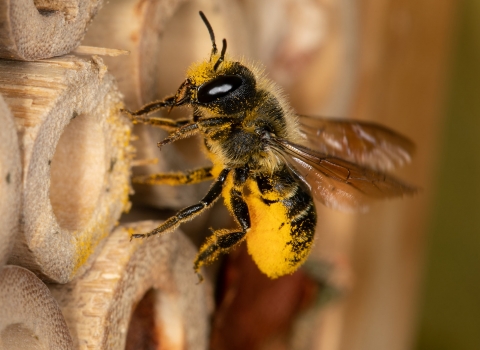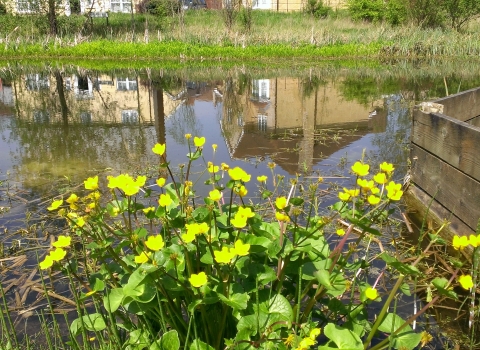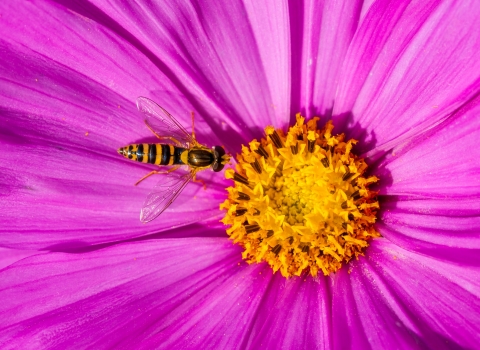One of the pleasures of going outside in the last few weeks has been to see the queen bumblebees as they come out of hibernation. I can find them looking along the bottom of the hedge for nesting sites in old mice or vole nests or in the long grass, but they are easiest to see where they are feeding. After a long winter they need nectar and pollen now, so I need to have lots of early-flowering plants for the bees to stay in the garden!
I have seen them earlier on the crocuses, on blossom in the hedge, and on the catkins of willow, but the bee hotspots at the moment are the berberis bush and the erica heather plants. Comfrey, flowering currant and even white deadnettle are good places to look. Some of the plants they like are native, some not; some are planted and some are weeds. The golden rule in wildlife gardening for insects is ‘feed them and they will come’.




